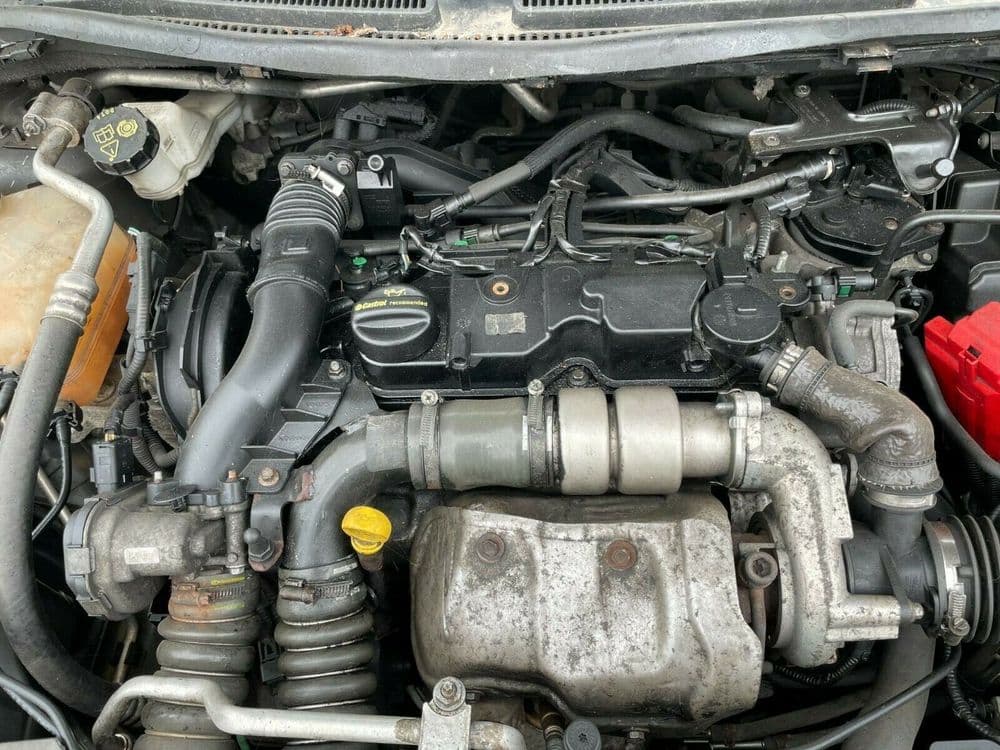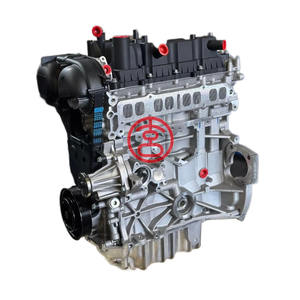Enhance Your Driving Experience with a Reliable Ford Fiesta Engine
Enhance Your Driving Experience with a Reliable Ford Fiesta Engine
Blog Article
The Future of Engines: Innovations Driving Sustainable Power Solutions
As the automobile industry navigates the vital change in the direction of sustainability, the future of engines is increasingly specified by groundbreaking technologies. Electric engine innovations, along with appealing developments in hydrogen fuel cells and biofuels, are improving the landscape of power services.
Electric Engine Dope
The advancement of electric engine developments signifies a critical change in the aerospace and vehicle markets, driven by the immediate requirement for lasting options to nonrenewable fuel sources. This shift is characterized by significant advancements in battery technology, power electronics, and electric motor layout, which collectively enhance the efficiency and performance of electrical engines.
Current advancements have actually brought about the development of lighter, a lot more energy-dense batteries, such as lithium-silicon and solid-state batteries, which guarantee longer varieties and shorter charging times. Additionally, renovations in electrical motor effectiveness, such as the use of permanent magnets and progressed cooling down systems, allow electric engines to run properly under varying problems. These improvements not only boost automobile efficiency but likewise add to a decrease in total power consumption.
Moreover, the integration of advanced software application formulas has maximized energy monitoring in electrical vehicles, permitting regenerative stopping and predictive charging methods. As suppliers progressively welcome electrical propulsion, the aerospace and automobile industries are witnessing a paradigm change towards greener technologies. This evolution not only satisfies regulatory demands however likewise straightens with customer choices for eco-friendly transport remedies, strengthening electrical engines as a cornerstone of future lasting mobility.
Innovations in Biofuels
As the aerospace and automobile industries progressively prioritize lasting power resources, improvements in biofuels become a complementary solution to electric engines. Biofuels, stemmed from organic products such as plants, waste, and algae, provide an ingenious method for reducing greenhouse gas emissions and reliance on nonrenewable fuel sources.
Recent study has concentrated on enhancing the efficiency and sustainability of biofuel production. Second-generation biofuels utilize non-food feedstocks, lessening competitors with food supply and lowering environmental effect. In addition, developments in synthetic biology have actually allowed the design of microorganisms to create biofuels much more effectively, resulting in greater returns and reduced manufacturing costs.
Furthermore, the development of drop-in biofuels enables seamless combination into existing facilities, making it possible for a smoother change for markets typically depending on nonrenewable fuel sources. ford fiesta engine. These fuels can be utilized in existing engines without modifications, facilitating their fostering throughout various industries
Investments in biofuel technology, together with helpful plans, are important to drive advancement and scalability. As the global area seeks to fight environment change, biofuels provide a pragmatic, instant remedy that aligns with the overarching goal of sustainability in transport and air travel.
Hydrogen Fuel Cell Technology
A growing number of firms and researchers are discovering hydrogen fuel cell modern technology as a sensible alternative to conventional power resources in transportation and energy systems. This innovation transforms chemical power from hydrogen right into electrical energy through an electrochemical reaction, with water as the only by-product, making it an eco-friendly alternative.
The core of hydrogen fuel cells is the fuel cell stack, where hydrogen molecules are divided into electrons and protons. The flow of resource electrons creates electrical energy, while protons relocate with a membrane to incorporate with oxygen from the air, creating water. This procedure leads to high efficiency and reduced discharges, placing hydrogen fuel cells as a critical gamer in the shift to sustainable energy.
Considerable improvements have actually been made in boosting the durability and effectiveness of gas cells, along with reducing expenses via innovative production techniques. Furthermore, the advancement of hydrogen manufacturing approaches, such as electrolysis powered by renewable resource resources, enhances the sustainability of the overall system. As framework for hydrogen refueling expands and production approaches become much more reliable, hydrogen fuel cell innovation holds wonderful promise for decarbonizing different sectors, including durable transport and fixed power generation.
Crossbreed Systems and Their Influence
Crossbreed systems stand for a substantial development in sustainable engine technology, merging standard interior combustion engines with electric propulsion to maximize power efficiency and decrease emissions (ford fiesta engine). This dual approach allows cars to use both source of power, allowing higher versatility in energy consumption and decreasing reliance on nonrenewable fuel sources

In enhancement to environmental benefits, crossbreed systems use consumers a practical shift towards fully electrical automobiles. They relieve range anxiousness by combining the comfort of gas with the benefits of electric propulsion, making them an appealing alternative for a bigger target market. As producers buy hybrid technology, the advancement of more innovative battery systems and lightweight materials proceeds to enhance performance. On the whole, crossbreed systems represent an essential step towards achieving lasting transportation and addressing the immediate demand for eco-friendly power solutions.
The Duty of AI in Engine Layout
Leveraging advanced algorithms and maker discovering techniques, the vehicle industry is increasingly integrating expert system (AI) right into engine style procedures. AI improves the efficiency and efficiency of layout by evaluating vast datasets to identify optimal setups and performance criteria. This capability permits engineers to replicate different operating browse around this web-site problems and forecast engine behavior under multiple circumstances, substantially lowering the time and expense related to typical prototyping methods.
Moreover, AI assists in the growth of innovative materials and combustion procedures tailored for sustainability. By maximizing fuel effectiveness and decreasing exhausts, AI-driven styles straighten with global initiatives intended at lowering the carbon impact of automotive engines. Machine understanding formulas can likewise forecast maintenance needs, resulting in enhanced dependability and longevity of engine components.
In Addition, AI contributes in the assimilation of electrification innovations, such as hybrid systems, where it can maximize battery administration and energy recuperation processes. As the market moves towards even more sustainable power services, the duty of AI in engine design ends up being increasingly essential, driving technology and boosting the performance of future engines. Ultimately, the partnership between AI and engine style declares a brand-new period of smarter, cleaner, and more reliable automotive modern technologies.

Final Thought
To conclude, the future of engines is being formed by a convergence of cutting-edge modern technologies that prioritize sustainability. Electric engine innovations, biofuel developments, hydrogen fuel cells, and hybrid systems jointly add to a considerable decrease in discharges and ecological impact. Additionally, the integration of expert system click for more info in engine style improves performance and efficiency. These transformative options highlight a dedication to developing a cleaner, a lot more sustainable automobile landscape, eventually profiting both society and the atmosphere.
Electric engine developments, together with encouraging advancements in hydrogen fuel cells and biofuels, are reshaping the landscape of power options. Additionally, improvements in electric motor performance, such as the usage of irreversible magnets and progressed cooling systems, enable electric engines to operate successfully under differing problems. By maximizing fuel efficiency and minimizing exhausts, AI-driven styles line up with global efforts intended at decreasing the carbon footprint of vehicle engines. As the sector moves in the direction of even more sustainable power remedies, the duty of AI in engine design becomes significantly crucial, driving development and boosting the efficiency of future engines. Electric engine improvements, biofuel developments, hydrogen gas cells, and hybrid systems jointly contribute to a significant decrease in emissions and ecological impact.
Report this page